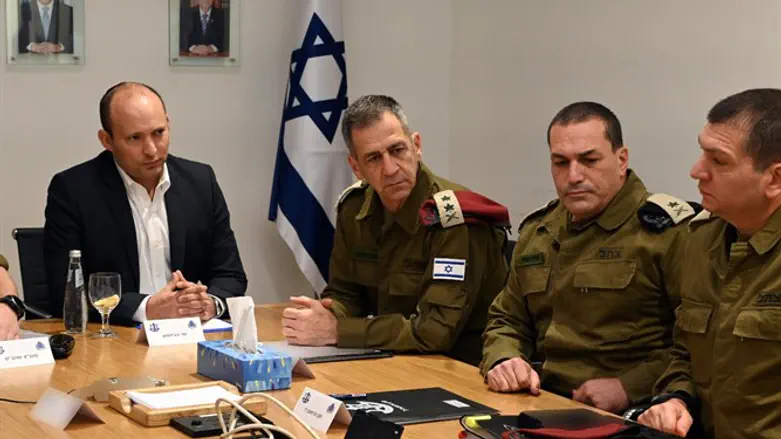
Defense Minister Naftali Bennett (New Right) plans to utilize a law allowing Gazan infiltrators to be held indefinitely.
According to Haaretz, Bennett sees such a law as one which would raise the number of Gazans held in Israeli prisons, and provide Israel with better capacity to negotiate the return of IDF soldiers and Israeli citizens held by Hamas.
The article also said that Bennett intends to use an existing law which Israel has refrained from using until now, due to fear of international criticism.
According to Haaretz, officials in the Defense Ministry have expressed doubt as to whether holding Gazans hostage will help future negotiations.
Hamas has been holding the bodies of IDF soldiers Hadar Goldin and Oron Shaul since the 2014 Operation Protective Edge.
In addition, two Israeli civilians who went missing in Gaza - Avera Mengistu and Hisham al-Sayed - are believed to be held by Hamas as well.
On Monday, Lior Lotan, former coordinator for Israeli hostages and missing soldiers, spoke at Yediot Aharonot's conference about the negotiations with Hamas for the return of the missing and kidnapped Israelis.
"In any case, we need to bring our people back," he said then. "The State has an obligation to its citizens and the IDF to its soldiers. The argument can be about the price and the risks - but the basic point cannot be forgotten."
"The State of Israel's toolbox is very limited. I'll tell you what I think we need to do, and that's not to forget that this is our obligation, this is our responsibility and this is what characterizes us as a society.
"I can't say what needs to be done, because there's no wisdom in that and it's not right and there are people working on it. The IDF and the State of Israel have other considerations in Gaza, which are no less important, such as calm for the civilians, and a stable security situation, and we need to see where we draw the line.
"But I believe, from a deep understanding of Hamas' people and their thinking, that if we put what's important to us on the table, it won't trigger the start of a war. It'll be a trigger for them to say, 'Here are people who this is important to, and they're not going to compromise on this.'"
